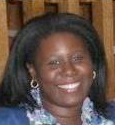
Shauneequa Owusu
In a U.S. economy driven mostly by consumer spending, older consumers outspend younger shoppers by at least $1 trillion annually. Workers who are the foundation of the supply side of the economy are also grower older. In seven years one in four workers in the United States will be at least 55 years old and a significant portion will continue to work past traditional retirement age. Furthermore, a younger worker can expect to spend the next 60 years in the workforce—much longer than earlier generations.
Workforce aging and the increasingly multigenerational workplace is an issue employers find challenging to adapt to. However, some are discovering that the new norm of four generations working together is an opportunity. By optimizing the strengths, talents, and skills of everyone, including older workers, businesses can potentially lower costs, boost productivity, spark new business, and relate to their growing older-adult consumer base—all of which can increase their bottom lines. Wells Fargo, Marriott International, and BMW, for example, have addressed their aging workforces by implementing strategies such as: making design changes to equipment, creating an employee resource group for older workers, and developing training tools to help support managers in leading multigenerational teams. As a result, they are seeing increases in productivity or profits—or both.
Employers who proactively find ways to support older workers create beneficial environments for workers of all ages. Having embraced the multigenerational workplace as an opportunity, they use innovation, flexibility, and creative talent management to stay ahead of the curve. These leaders deserve recognition by their peers: they are age-smart.
RECOGNIZING AGE-SMART PRACTICES
A good way to encourage businesses to create and execute age-smart practices is to reward those that are already doing so. “Age Smart Employer Awards”—an initiative of Age-friendly NYC and the New York Academy of Medicine (NYAM), funded by the Alfred P. Sloan Foundation—seeks to do just that. These awards honor New York City employers who have innovative practices that optimize the multigenerational workplace as part of a 21st century business strategy. A compendium of such strategies and practices, developed with the help of leading researchers in economics, organizational management, aging, and business, will guide the judging. Applications will be accepted beginning in April 2013. For more information and to download the compendium, visit www.AgeSmartEmployer.org.
You might ask: Why New York? Aside from its position as a global center of commerce, New York City was the first city to be recognized by the WHO Global Network of Age-friendly Cities and Communities, a program of the World Health Organization that links a growing number of cities around the world (135 so far) that commit to creating physical and social urban environments that promote healthy and active ageing and a good quality of life for their older residents. Age-friendly NYC’s work has attracted widespread attention and has become an international model. Currently, 700,000 workers in New York City are 55 and older and they represent a disproportionately large percentage of New York City’s workforce. Through consultations with older New Yorkers, NYAM found that they both want and need to remain in the workforce past the traditional age of retirement. Conversations with employers highlighted concerns about anticipating and accommodating the shifting needs of older employees, facilitating better relationships among multiple generations of workers, and creating two-way streets for younger and older workers to share their knowledge.
New York City has a unique opportunity to lead employers nationwide, by inspiring the creation of more age-smart workplaces, enhancing the economic well-being of older adults, increasing the contributions of older workers to a healthy economy, and capitalizing on the emerging silver economy. The closer companies come to achieving these imperatives, the more competitive they will be globally.
Author
Shauneequa Owusu
Manager, Age-Friendly Commerce
The New York Academy of Medicine
Email: sowusu@nyam.org

